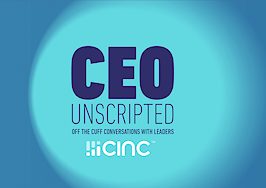We asked CINC client Geoff Adams to share his top five tips for driving a ROI with this important tech tool. Adams has been a CINC client for more than five years and is consistently highlighted within the Top 1% of Realty ONE Group professionals. He attributes part of his success to CINC housing his most important asset: his database.
1. Document conversations with notes
Rapport-building is critical in real estate. Asking great open-ended questions focused on your client’s “why” helps you understand their motivation. As you converse with consumers, it’s essential to not only listen but document the meaningful conversation. Notes within your database give you points of reference to use in future calls. The pain points and pleasure points further allow you to build a relationship as the market expert.
2. Utilize pipeline statuses
Pipeline statuses give you a pulse on where consumers are pending in your database. By understanding where each lead stands from Attempted Contact to Closed Deal, you can build a forecast for your future business. If you are a team lead, having your agents use the pipelines provides additional accountability.
3. Create reminders for the next conversation
Based on the lead’s pipeline status, you should use reminders to help organize your follow-up. If a consumer is buying/selling within 90 days, you should call (not text or email) once a week to stay connected. At the end of every conversation, set an appointment for the next call. Consumer planning a transaction within three to six months should be called every two weeks, and transactions more than one year away should have a conversation monthly as plans often change.
4. Regularly update MLS search parameters
Conversion engines like CINC offer automated emails with homes for sale or recently sold details. As the local expert, you should make sure the alerts send relevant information and the correct frequency. In your regular communications driven by reminders, you should also update the home features (bed/bath, price point, etc.) your consumer wants in their next home. For buyers, you should try to have a search that yields 50-300 homes.
5. Apply labels to identify now and future business
The appropriate label on a lead helps you prepare for the short term and the long game. Your database is your money maker and these money moves will help you find consumers that are a fit for specific properties. For example, having an investor label empowers you to have a list of buyers already created when a distressed property hits the market.
If you are looking for more than a database, but a solution that serves as a lead generation and a conversion engine, learn more about CINC.











